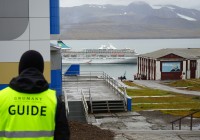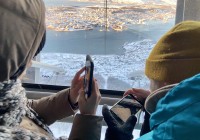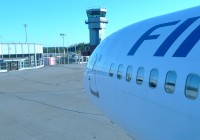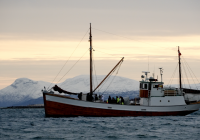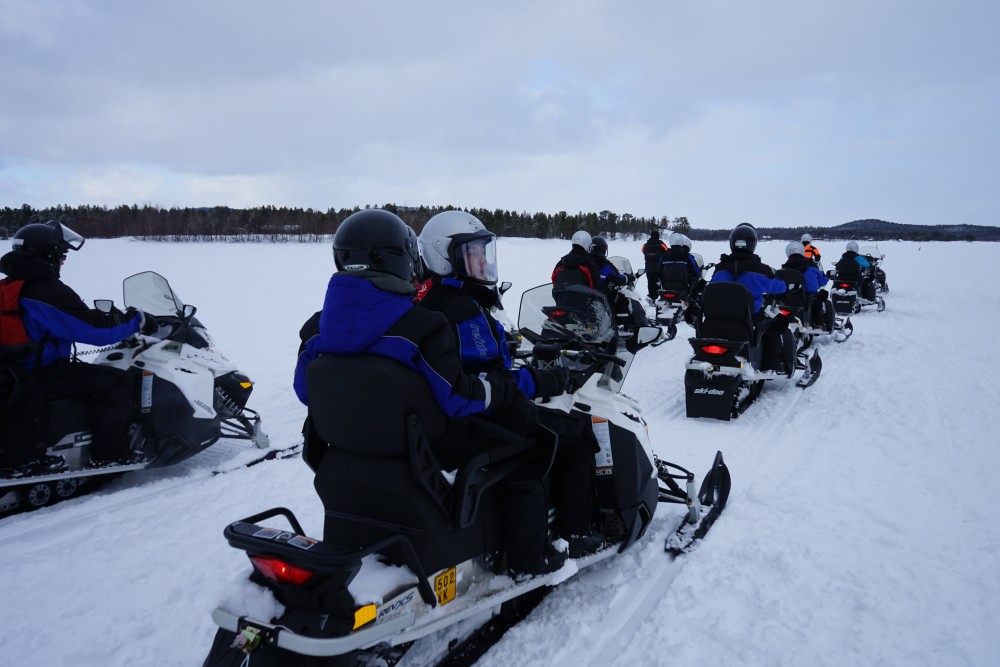
Lapland tourism workers mourn dead colleague — “I have never worked in such a bad company”
ADVERTISEMENT
One of his colleagues at the company, a foreign woman who also worked as a guide, died on a snowmobile safari after colliding with a tree during a 40km trek across the Arctic region in February.
Menaya and the young woman were friends as well as work colleagues, and lived in apartments opposite each other.
In an interview with Yle, Menaya is highly critical of his former employer, saying that the firm failed to take sufficient steps to ensure the safety of staff as well as tourists.
“I have never worked in such a bad company,” Menaya says, noting that he has three years experience working in the tourism sector in other parts of Europe.
“This is the worst I have seen in my life. And that’s one of the reasons why I left. And I am sure there are underpaid jobs here as well [in Spain] but we don’t have the condition of being -20 degrees, icy roads, far from our homes.”
Giada, a student from Italy, also worked for Nordic Unique Travels and was a colleague of the woman killed on the safari.
All of the guides worked long hours, Giada said, and were especially tired during the peak of the winter season.
ADVERTISEMENT
“My colleague who died in the accident was certainly very tired, but she was very precise, punctual and friendly. She always came to work in good time to check the supplies, and she always had time to talk with me before the safari,” Giada recalled.
Giada has requested that only their first name be used in this article, as they do not want to get a reputation as a “problem worker” for speaking publicly about the company’s failure to provide a safe working environment.
Last year, two tourism sector workers in Finnish Lapland — speaking under condition of anonymity — told Yle News that the exploitation of foreign workers was an “open secret” and predicted that more accidents were inevitable due to the long hours and excessive demands on workers.
“I was really excited when I came here, but then I noticed the problems and I was just dumbfounded. How can they let so many foreign people, who are excited to come to work in Lapland, just run into this chaotic mess,” one worker told Yle News at the time, adding that her experience led her to decide that she would “never work as a tour guide” in Lapland again.
Yle’s office in Rovaniemi also carried out an investigation into complaints by tourism workers of shortcomings within the sector, with Nordic Unique Travels cited numerous times as a particularly problematic company.
Inadequate rest
The workers interviewed by both Yle News and Yle Rovaniemi told very similar stories — of excessively long working hours, between 10-16 hours almost every day, and insufficient rest periods between shifts.
Nordic Unique Travels denied to Yle that work days were this long every day or almost every day. A company representative also told Yle that the rest time between shifts was “sometimes” less than it should be.
According to the terms of the sector’s collective agreement, the minimum rest period between shifts should be 11 hours, although it can be shortened to 8 hours with the worker’s express agreement.
However, Ramiro Menaya told Yle that Nordic Unique Travels failed to ensure that workers were not on duty for up to 16 hours at a time, or that they would be given a sufficient amount of time to rest between shifts.
“They are OK with you driving for hours on icy roads without proper training,” Menaya said.
A Japanese man, who also worked for Nordic Unique Travels last winter but wished to remain anonymous, recalled the long working hours of one colleague at the company.
“He would start work at 8am, go on safaris and return from work at 1am. It was like this almost every day,” he said.
This account is backed up by Giada, who confirmed that the guides had very long days and even had to eat their meals while working. Giada worked in the company’s office, not as a guide, but also had to eat lunch and work at the same time.
Company denies workers’ claims
Yle requested an interview with Zhaoyu Jin, listed as the owner and CEO of Nordic Unique Travels.
However, the firm’s Chief Administrative Officer Elias Alatalo and Tommi Ylisirkka, a member of the board of directors, responded to the request.
“Unfortunately, the rest time is sometimes shorter than it should be, but this is entirely voluntary for employees. The problem with seasonal work is that during the high season, between December and January, everyone is very busy,” Alatalo said.
Alatalo added that although workers did sometimes have long days, the frequency was nowhere near “every day or almost every day”.
“During the busiest season, such long working days can occur on a weekly basis,” he said, adding that long shifts, for example in excess of 12 hours, are taken on a voluntary basis.
“Some are happy to take on these shifts. They can always refuse them. These long days are given to those who want to do them,” Alatalo said.
Ylisirkka meanwhile told Yle that the safari guide who died in the snowmobile crash had a normal number of working hours and days off prior to the accident.
Dilapidated vehicles
In addition to the long hours, the workers interviewed by Yle also reported sub-standard and often unsafe working conditions and equipment, including having to drive in older, dilapidated cars.
One of the vehicles had up to 700,000 kilometres on the odometer, Menaya recalled, while Giada recounted a story told by colleagues of the door on a minibus freezing over, which led to customers having to hold the door shut while travelling in sub-zero temperatures.
Giada added that while the tyres of the cars were generally in good condition, the company did not invest enough in maintenance of the vehicles or equipment.
The Japanese worker, mentioned earlier, also noted the risks presented by poor quality company cars.
“We workers were always worried about whether the car would break down in the middle of nowhere in the freezing cold,” he said.
Tommi Ylisirkka of Nordic Unique Travels responded to these accounts by saying that snow can sometimes accumulate between the sliding doors of a minibus, and freeze, during the winter months.
“If the car is icy, it can be taken to a warm car park to thaw. Our cars have been inspected and the winter tyres and tyre pressures are also checked,” Ylisirkka said.
The company further denied that the cars were in poor condition, although they accepted that their fleet does include some older vehicles, but added that they employ two mechanics to repair the cars immediately if there are any faults.
Inadequate training
According to Ramiro Menaya, minor accidents involving the company vehicles were an almost daily occurrence during the winter months, although he personally was not affected.
“I started work in the autumn and received my driving training when there was no snow yet. Then I got used to the snow and the icy roads,” he said.
Ramiro Menaya worked as a snowmobile safari guide for Nordic Unique Travels. Image: Ramiro Menayan kuva-arkisto
Elias Alatalo of Nordic Unique Travels said the frequency was not quite as high, but admitted that small incidents do happen almost every week. However, he said that “the risk of getting stuck and understanding that risk is learned by experience.”
“Most of them are parking accidents or a car caught in a snowdrift on a forest road,” Alatalo said.
However, Giada said the workers were not provided with adequate training to drive in icy and snowy conditions.
“Most of the workers are from southern Europe, where they are not used to winter driving. I think the solution would be better and longer training,” Giada said.
Alatalo told Yle that the company provides comprehensive driving training, but learning how to avoid getting stuck in snow was something the workers would “learn by experience”.
“I thought this would be a good country”
Menaya quit his job at Nordic Unique Travels after a few months and left Lapland, saying he was especially disappointed with the pay as well as the working conditions.
He returned to Spain at the beginning of this year but still works in the tourism industry.
“It was my first time working in Finland, but based on my experience, it will probably be my last,” he said.
Giada also had high expectations of working in Finland, but these were also dashed by the experiences of working in Lapland’s tourism sector.
“I thought that working conditions here would be fair for the worker and that this would be a good country,” Giada said.
This story is posted on The Barents Observer as part of Eye on the Arctic, a collaborative partnership between public and private circumpolar media organizations.
ADVERTISEMENT
The Barents Observer Newsletter
After confirming you're a real person, you can write your email below and we include you to the subscription list.



